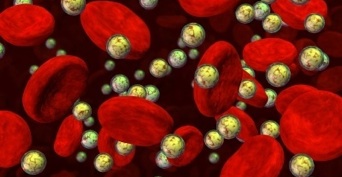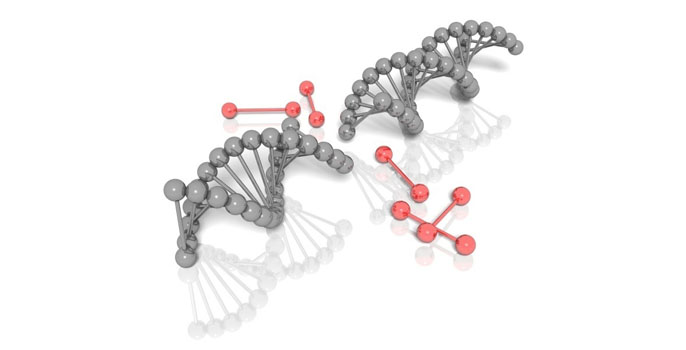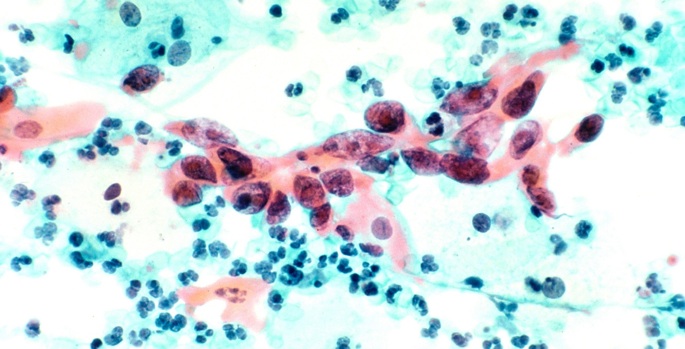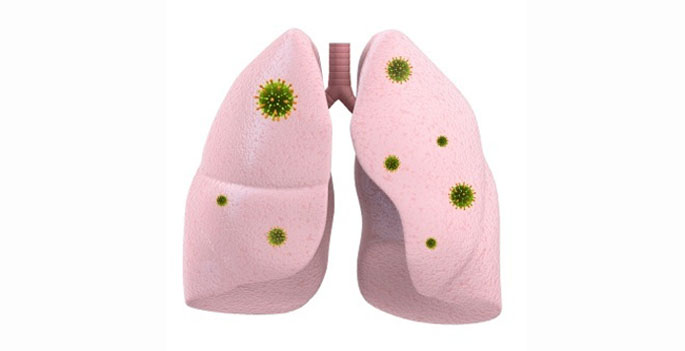Health And Medicine
-

Reversing lipid woes in cystic fibrosis
Abnormal levels of fatty acids in the blood and tissues of patients with cystic fibrosis may be reversed by supplementation with the fatty acids DHA and EPA. Read MoreMar 3, 2012
-

‘Detangler’ binds, bends and cuts DNA
New details on the DNA-cutting activity of topoisomerase II, a target of anti-cancer drugs, could lead to better chemotherapeutic agents. Read MoreMar 2, 2012
-

Early study hints at ‘brown fat’ as potential diabetes treatment
A new study finds long-lasting reversal of diabetes is possible without insulin through transplantation of brown fat tissue. Read MoreMar 2, 2012
-

‘Toolkit’ makes bedtime less stressful for children with autism
A new resource developed by the Vanderbilt Kennedy Center could improve sleep for children with autism. Read MoreFeb 27, 2012
-

Switch to cooling blanket spurs new infant brain research
Using a cooling blanket with newborns who have suffered from oxygen deprivation allows researchers to study what is happening in the brain and what brain cooling therapy can achieve. Read MoreFeb 24, 2012
-

Studies pinpoint new anti-cancer drug target
Vanderbilt researchers have discovered a new molecular participant in the Wnt signaling pathway, which plays important roles in cell growth, development and cancer. Read MoreFeb 23, 2012
-

New melanoma drug nearly doubles survival in majority of patients
Investigators from Vanderbilt-Ingram Cancer Center and 12 other centers in the United States and Australia have found that a new drug for patients with metastatic melanoma nearly doubled median overall survival. Read MoreFeb 23, 2012
-

‘Acid test’ for cervical cancer
An inexpensive, low-tech test for cervical cancer may be a good option for screening for the disease among HIV-infected women in developing countries. Read MoreFeb 21, 2012
-

How Cool Cap saved this baby’s life
Monroe Carell Jr. Children’s Hospital at Vanderbilt has treated more than 200 babies with Cool Cap since 2006. Researchers are looking at ways to extend the therapy to premature infants. Read MoreFeb 20, 2012
-

Stem cells take heart
Signaling pathway discoveries suggest ways to induce stem cells to become cardiac muscle cells, which could be useful for regenerating damaged heart muscle. Read MoreFeb 20, 2012
-

Investigators seek clues to paradox of atrial fibrillation risk
Vanderbilt researchers are seeking genetic clues to explain why risk factors for AF are more prevalent in African-Americans but their incidence of the disease is lower than European-Americans. Read MoreFeb 17, 2012
-

Memory intact in early psychosis
Brain deficits are not present in the early stages of schizophrenia, suggesting it may be possible to delay or prevent the development of brain abnormalities. Read MoreFeb 16, 2012
-

On the tail of RSV infection mechanism
New details about the life cycle of respiratory syncytial virus (RSV) could aid the development of therapies to combat this leading cause of serious illness in infants and the elderly. Read MoreFeb 15, 2012
-

Opinion: Scientific research is essential to state’s economic health
In this Tennessean opinion piece, Vice Chancellor for Health Affairs Jeff Balser discusses the impact scientific research has in Tennessee and the critical importance of continued federal investment in this research. Read MoreFeb 10, 2012
-

Cutting calories doesn’t reduce ventilator use: study
A new study found that lower-calorie tube feedings do not reduce a patient’s ventilator use. Read MoreFeb 10, 2012
-

Women who eat fish have lower colon polyp risk
Women who eat at least three servings of fish per week have a reduced risk of developing some types of colon polyps according to a new study by Vanderbilt-Ingram Cancer Center investigators. Read MoreFeb 9, 2012
-

Practice of defensive orthopaedic medicine costs U.S. $2 billion annually
A Vanderbilt study suggests unnecessary costs associated with the practice of defensive medicine play a substantial role in the nation’s rising cost of health care. Read MoreFeb 9, 2012
-

Matchmaker for clinical studies
ResearchMatch.org is a web-based registry that is connecting participants and researchers for clinical studies. Read MoreFeb 8, 2012
-

Tool finds connections in genome data
A new analytical tool points to genes that act together to increase disease risk. Read MoreFeb 8, 2012
-

Prostate size may help in predicting cancer severity
Severity of cancer could be predicted by prostate size. Read MoreFeb 3, 2012